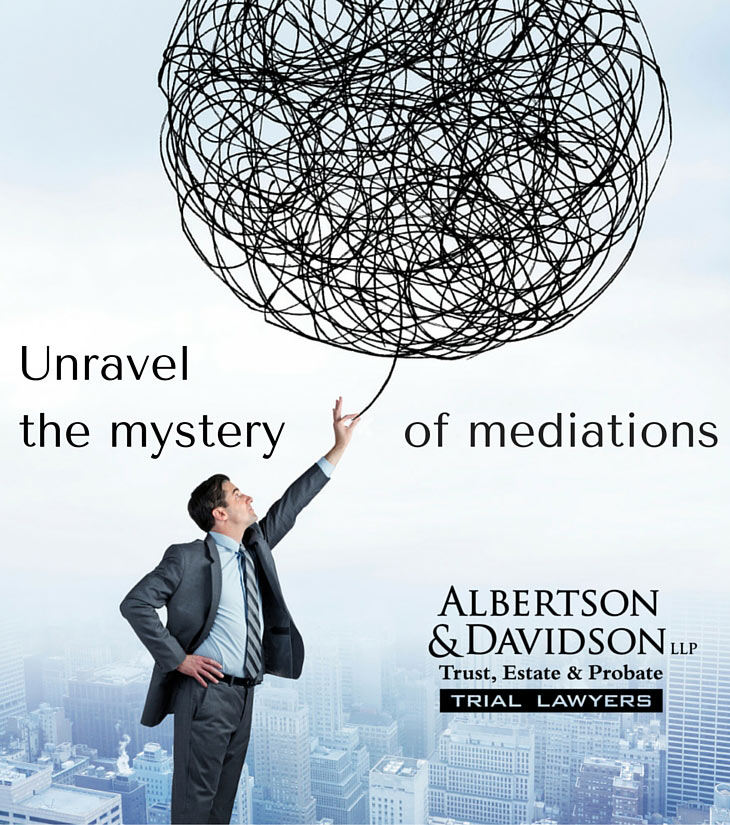
Mediations are widely misunderstood, I think. Some people like them, some people hate them, and most people have no idea what they even are.
Mediations are really just settlement talks. It is a meeting in a neutral office usually with a neutral party present. The neutral party is either a lawyer or a retired judge, referred to as the mediator. Unlike a trial or arbitration, the mediator is not going to make a decision in your case—he or she will not say who is right and who is wrong. Instead, the mediator just goes back and forth between the parties and tries to broker a deal.
Let’s discuss the good and the bad of mediation:
- The Bad. Mediations do cost something for the mediator, plus attorneys’ fees and your time. Mediations tend to last all day, and sometimes into the night. If you spend eight hours in a conference room and don’t settle, it feels like a huge waste of time and money.
And there are times when an opposing party will never provide a reasonable settlement offer, or any offer whatsoever. Unfortunately, some lawyers think playing games at mediations is a successful strategy—it isn’t.
Most of the action in settling a case at mediation happens in the last hour or two of the process. That means a majority of the day is spent sitting and waiting.
While the mediator will listen to you speak, he or she will not make any determination as to who is right and who is wrong. In fact, many mediators will tell both parties the bad parts of their case in order to foster a settlement.
- The Good. Mediations offer a chance to either (1) settle your case, or (2) learn some valuable information about your opponent. Legally speaking, anything said at mediation cannot be used as evidence later in the case, but there still is great insight to be found.
For example, once you know the driving force behind your opponent’s case, you have a better idea of where to attack. Mediations provide a look “behind the curtain” based on what demands the other side is making to settle.
Also, in most mediations, information is shared to help justify the settlement offers being made. That could be information that you did not know prior to mediation. And while you cannot use that information at trial, knowing it exists helps you locate it through discovery after mediation ends (assuming the case does not settle).
Last, but not least, you may successfully settle your case. Most mediations result in a settlement. The process is a proven success at resolving cases. Mediations tend to work best when a lawsuit has already been filed, but even mediations conducted before filing a lawsuit can be successful at times.
In our opinion, there are rarely any downsides to mediation. You can either settle your case or you can learn valuable insight about your case, either is a good thing.
